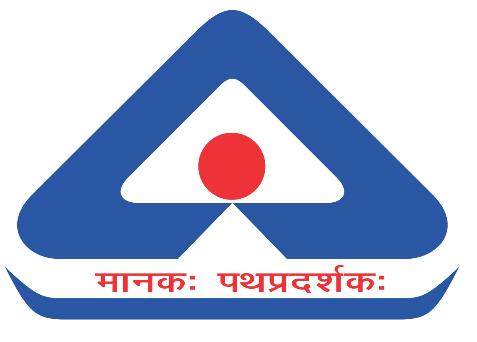
India BIS certification
BIS certification is ISI certification issuing authority Indian Bureau of Standards (The Bureau of Indian Standards), referred to as BIS, responsible for product certification.
According to The BIS Act 1986, the Indian Bureau of Standards (BIS) is specifically responsible for product certification and is the only product certification body in India. BIS consists of 5 regional offices and 19 branch offices. Officially formed in 1987, to replace the 1946 establishment of the Indian Standards Institute.
Regional Bureau supervises the corresponding branch. BIS belongs to eight laboratories and independent laboratories responsible for the product certification process to sample the test. These laboratories are in accordance with ISO / IEC17025: 1999 implementation.
The Indian Bureau of Standards (BIS) belongs to the Department of Consumer Affairs and Public Disputes. Although it is a social corporate body, BIS exercises its functions as a government body. Its main tasks are to formulate and implement national standards, to implement conformity assessment systems, to represent countries in international standards such as ISO and IEC Standardization activities.
Since the Indian Standards Association, the predecessor of BIS, started product certification in 1955, India has so far certified product for 50 years. At present, BIS has issued more than 30,000 product certification certificates covering almost every industrial area such as agricultural products, textiles and electronics.
India BIS certification range
The first batch (MANDATORY): Certification BIS certification applicable to any country manufacturers, certification areas are: 1. Tires; 2. Iron bucket, hot water bottles, electric stoves, heaters and other appliances; 3. Cement and concrete; 4 . Breaker; 5. Steel; 6. Meter. 7. Auto parts; 8. Food, milk powder; 9. Feeding bottle; 10. Tungsten lamp; 11. Oil furnace; 12. Large transformer; 13. Plug; 14 Medium and high voltage wire and cable; 15 self-ballasted light bulbs. (Forced from now on in 1986)
Second (COMPULSORY): There are mandatory registration products for the electronic information technology equipment, including: 1. Set-top box; 2. Laptop; 3. Notebooks; 4. Tablet PC; 5. Screen size of 32 inches and above the display; 6. Video monitor; 7. Printer, plotter, scanner; 8. Wireless keyboard; 9. Answering machine; 10. Automatic data processor; 11. Microwave oven; 12. Projector; Electronic clock 14 power amplifier 15 electronic music system (mandatory since March 2013)
The second installment (COMPULSORY): 16.IT equipment power adapter; 17.AV equipment power adapter; 18.UPS (uninterruptible power supply); 19. DC or AC LED module; 20. Battery; LED lights; 22.LED lamps and lanterns; 23. Mobile phones; 24. Cash registers; 25. Sales of terminal equipment; 26. Photocopiers; 27. Smart card reader; 28. Postal processing machines, automatic stamping machines; 30; mobile power. (Mandatory from November 2014)
Certification process:
Apply Foreign manufacturers seeking BIS certification generally need to use a dedicated application and prepare the relevant documents to apply to BIS New Delhi headquarters.
Record. BIS to check the applicant to submit the application documents and information review, if the formalities are complete, the application is recorded. Applicants must pay the appropriate handling fee.
3. Initial factory inspection. BIS will assign officials with no more than two to the factory for inspection. The applicant shall bear the expenses incurred by the official delegation traveling to the factory to inspect the travel, visa fees and other expenses and the corresponding inspection fees.
4. Issue the certificate. If the initial test and test results pass, and the applicant agrees to the BIS accredited test certification program and pay BIS identification fee, the applicant may issue a certificate. The certificate is valid for 1 year. After the certificate is granted, the licenser pays the identification fee and the annual fee of the certificate annually.
5. After the certification supervision. BIS oversees the quality of its certified products through routine inspections of the licensors and spot checks and tests of samples from the factory and the market. If regularly inspected, the samples taken from the factory or the market can be updated by the factory inspection and independent test results to meet the requirements. The applicant submits the renewal application to BIS by submitting the designated form, and the certificate renewal fee is Rs500. Licensed person also bear the sample inspection costs.
BIS certification need to submit what technical documents:
Application form
2. Proof of the appointment of a representative in India or proof of the manufacturer's India office and a permit from the Reserve Bank of India;
3. documents that prove the establishment of the company, such as registration card;
4 process flow chart, indicating the entire process of product manufacturing, (from raw materials to finished products);
5. Quality control system (such as quality manuals, quality control plans, test arrangements, etc.);
6. If available, provide additional details of the product or system certification;
7. If yes, provide details of the components or raw materials used in the manufacture of the product prior to certification;
8. List of machines manufactured and manufactured;
9. Test equipment during the test list;
10.Product design.
11. Laboratory supervisor, technical and QC staff qualification and detailed experience;
12. Test reports from accredited independent labs or factory own labs;
13 plant layout diagram, clearly shows the main production machines, laboratories, etc .;
14. Traffic maps near the factory, schematic from the nearest airport or train station to the factory, and detailed instructions from India to the factory;
15. The end of a single bill.